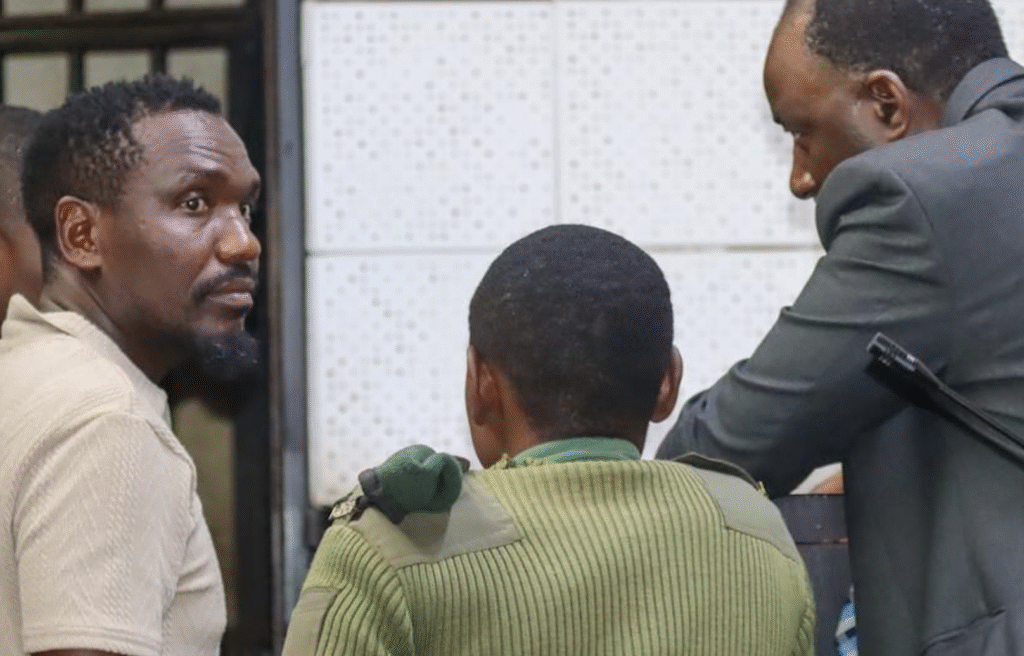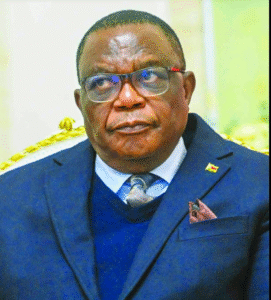BLESSED MHLANGA CLOCKS 50 DAYS IN JAIL FOR DOING HIS JOB

It has now been 50 days since Zimbabwean journalist Blessed Mhlanga was arrested and thrown behind bars. He remains locked up at Harare Remand Prison, one of the most overcrowded and unsanitary detention centres in the country. His only “crime” was doing his job—reporting the truth.
Mhlanga is not a criminal, and he poses no danger to society. Yet he has been denied bail multiple times, forced to endure appalling prison conditions while awaiting trial. He has not been convicted of any offence. Under Zimbabwe’s Constitution, a person is presumed innocent until proven guilty. But in his case, the law is being weaponized—not to serve justice, but to punish him before he even gets a fair hearing. This is nothing short of pretrial punishment.
Harare Remand Prison is notorious for its inhumane conditions. It is overcrowded, filthy, and lacking basic necessities. Inmates are often denied access to proper food, medical care, and hygiene. Descriptions of the facility range from “dungeon” to “death trap.” Keeping a journalist—whose only offence is telling the truth—under such conditions is cruel and unjustifiable.
What has happened to Blessed Mhlanga is not an isolated incident. It is part of a wider pattern of repression under Zimbabwe’s ruling party, Zanu PF. The state continues to crack down on journalists, activists, and anyone who dares to expose corruption, question authority, or speak out against injustice. In recent years, media freedom has come under increasing threat. The message is clear: if you challenge the powerful, you will be silenced.
Mhlanga had been reporting on Zimbabwe’s deepening crisis—rampant unemployment, economic collapse, broken infrastructure, and a failed healthcare system. He was giving a voice to the voiceless, documenting the suffering of ordinary Zimbabweans who have been abandoned by a state more interested in consolidating power than delivering public services.
Instead of addressing the real problems facing the country, the government has chosen to go after those who speak about them. Blessed Mhlanga was targeted not because he committed a crime, but because he revealed the truth. His arrest sends a chilling message to other journalists: stay silent, or you could be next.
Local and international organisations have called for his immediate release. Media rights groups, civil society organisations, and ordinary citizens are demanding justice. They insist that journalism is not a crime, and that Zimbabwe must uphold the basic human rights of all its citizens—including the right to free expression and a fair trial.
Yet the state continues to ignore these calls. Every day that Mhlanga remains in jail is another day of injustice—not just against him, but against the ideals of democracy, accountability, and freedom of the press. If a respected journalist can be imprisoned for simply doing his job, then no one in Zimbabwe is safe from the wrath of a repressive regime.
Fifty days is too long. It’s time for the government to end this charade. Blessed Mhlanga must be released immediately and unconditionally. His arrest was a political act meant to intimidate the media and suppress the truth. But no government can jail every journalist, silence every voice, or crush the public’s right to know.
The world is watching. And the people of Zimbabwe will not forget.
Free Blessed Mhlanga. Let truth speak louder than fear.



